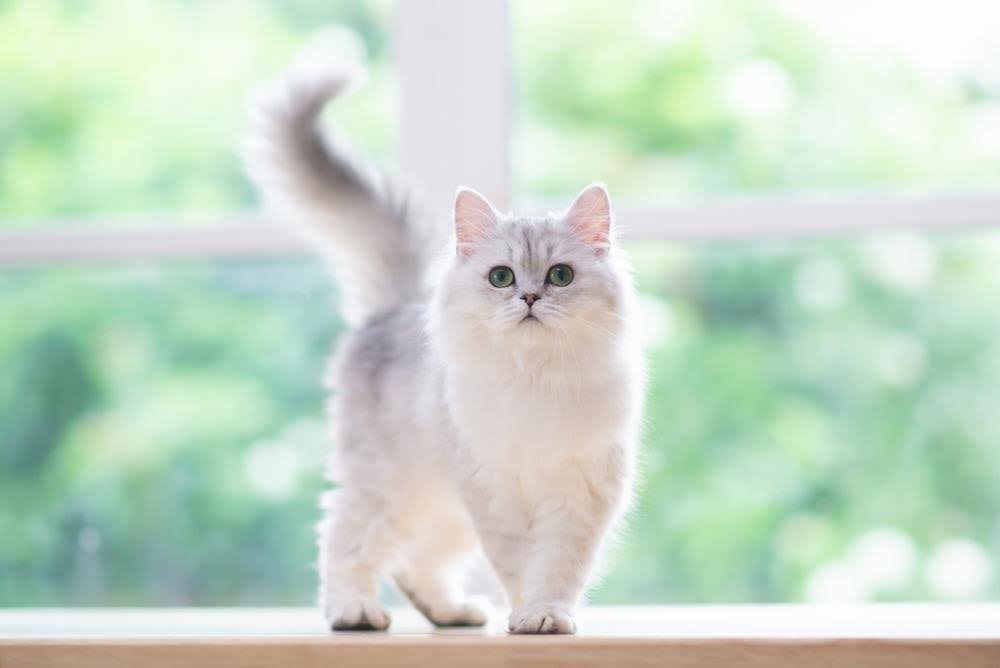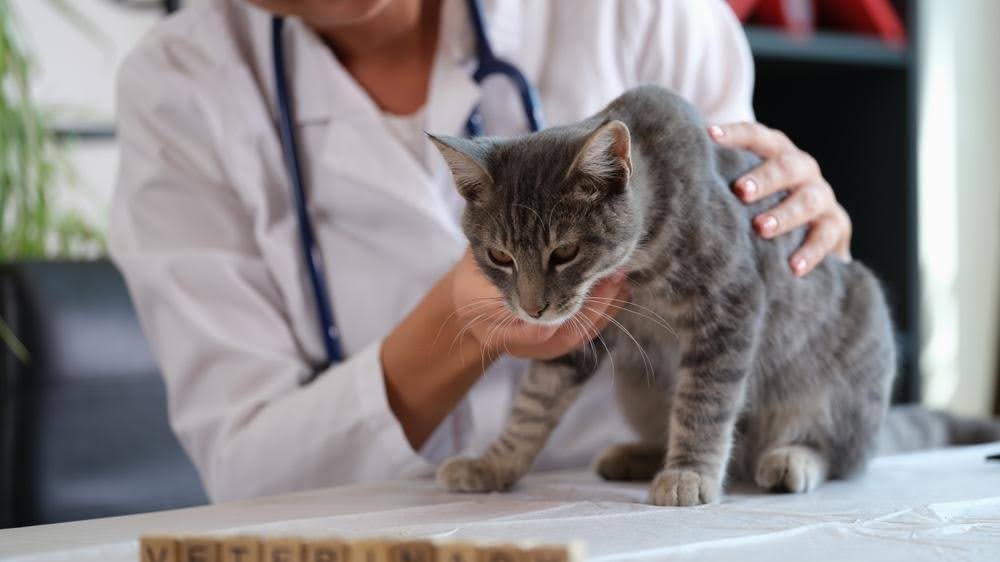

Educating yourself about your pet's health is one of the best things you can do as a pet parent. And while the term "leaky gut" sounds pretty straightforward, this condition may not be what you imagined. Here's what leaky gut syndrome in cats is, what causes it and how it's diagnosed and treated.
What Is Leaky Gut Syndrome in Cats?
Leaky gut syndrome — also known as intestinal permeability — isn't a disease or diagnosis. It's an umbrella term for the clinical signs associated with gastrointestinal conditions, including dysbiosis in cats. Dysbiosis describes a change in the composition and/or diversity of microbiota (microorganisms) in the small intestine.
So, what is leaky gut syndrome, exactly? In a healthy cat, the intestinal walls serve as a protective barrier to keep out foreign invaders and allow key nutrients from food to pass through. When the integrity of the cells that make up this barrier is disrupted, substances such as allergens or toxins can pass through and enter the bloodstream. Furthermore, when the barrier is overloaded and not functioning properly, it can't absorb nutrients from food as it should.

What Causes Leaky Gut Syndrome in Cats?
There's no single cause of leaky gut. However, intestinal damage or injury is typically responsible, and that injury can be acute or chronic.
Acute injuries can include trauma to the abdomen, exposure to toxins or certain medications, and even a heavy intestinal parasite load. Both indoor and outdoor cats can experience abdominal trauma and intestinal parasites, but outdoor cats are at higher risk.
Chronic intestinal barrier damage is often associated with dysbiosis in cats. Your pet's gutmicrobiome is an ecosystem of bacteria, fungi, protozoa and viruses that live in the gastrointestinal tract. Various factors can affect the microbiome, including your cat's age, nutrition and overall health. Research shows that greater numbers of invasive bacteria can cause aninflammatory response in the intestine, contributing to signs of leaky gut syndrome and body-wide inflammation and illness.
Beyond identifying and examining the diseases responsible for signs of leaky gut syndrome, the risk factors for this condition are largely unknown. Cats who are obese or prone to stress may be at greater risk.
What Are the Signs of Leaky Gut Syndrome in Cats?
When your cat's intestinal cells can't filter or absorb nutrients as they should (known as malabsorption), their system starts flushing key nutrients and letting in harmful agents such as bacteria, toxins and allergens. This can cause a range of signs, including:
Diarrhea or loose stools
Vomiting
Weight loss
Flatulence
Lethargy
Poor coat or skin condition
Allergies
If you notice a sudden onset or intermittent appearance of these signs, contact your veterinarian for an exam. Your cat may still be eating plenty — or even more — but their body won't be able to effectively process the nutrition they need to function at their best.
Chronic leaky gut syndrome may also lead to systemic signs of inflammation and disease. For example, while research is still ongoing in cats, leaky gut syndrome has been linked to heart disease and diabetes in humans.
How Is Leaky Gut Syndrome Diagnosed?
Leaky gut syndrome isn't a medical diagnosis, so your vet won't be able to confirm it or rule it out. Instead, they'll look for the root cause of your cat's signs, such as inflammatory bowel disease or dysbiosis.
The good news is that much of the groundwork for gastrointestinal disease testing is the same. These tests may include:
Bloodwork
Radiographs
Ultrasound
Stool sample exams
Intestinal biopsy

Is Leaky Gut Syndrome Treatable?
The cornerstone of treatment for leaky gut syndrome is to resolve inflammation and give the intestinal barrier time to heal. If your vet suspects a food allergy, they may recommend a hypoallergenic food to eliminate allergens that may be causing inflammation of the intestinal cells. In general, offering your cat highly digestible, nutritionally balanced food cansupport a healthy microbiome and ensure they receive adequate nutrition.
Your vet may establish a multi-modal treatment and maintenance plan that could include fiber supplements, antioxidants, prebiotics, probiotics and even antibiotics. Depending on the diagnosis, they may also recommend nutraceuticals (dietary supplements) for ongoing disease management. Other approaches include deworming and evaluating any medications your cat is taking that may lead to excess inflammation.
When managing your cat's symptoms at home, pay attention to their behaviors and decrease stressful situations wherever possible. For example, introduce changes gradually when they can't be avoided, and minimize or avoid boarding stays, car trips or other events that trigger stress.
Caring for Your Cat Together
Regularly communicating with your veterinary care team is important to restoring your cat's healthy intestinal barrier function. Reach out if your cat's signs aren't improving or if you're struggling to maintain your cat's multi-modal plan. By working with your vet, you can minimize the effects of leaky gut syndrome regardless of the cause and support better health and quality of life.






















